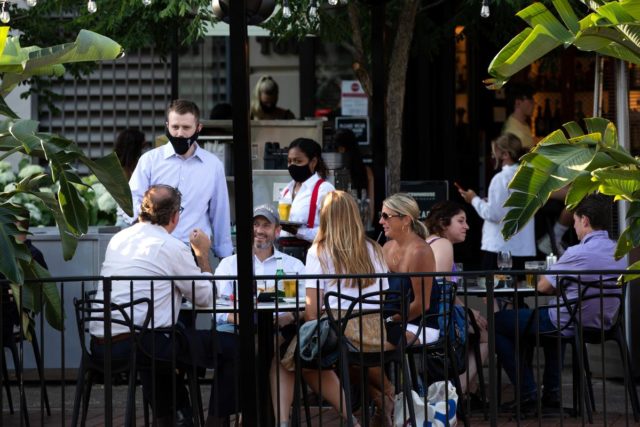
Pretoria – Restaurants may have reopened for sit-down meals, but with the sale of alcohol still prohibited, some may be forced to close again.
Chairperson of the Restaurant Chapter of the Tshwane Tourism Association Christian Maiorana said that although business owners were grateful the government had given the green light for them to operate, things were not “taking off” for them.
Maiorana, also a restaurant owner, said many eateries had to make several changes to comply with the regulations. These included reducing capacity seating to ensure social distancing, training of staff and providing protective equipment as well as sanitisers.
“Our running costs for cold rooms, electricity, staff salaries and of course the full rent is still expected, but we’re not making any money.
“It’s not just about selling alcohol; people don’t come to sit-in restaurants for food; they come for the experience. The government has opened up the industry, but has taken away everything that makes it what it is.”
Maiorana said permitting alcohol sales alone would not save restaurants, but would help them at least find a way to break even.
It would be of great benefit to restaurants if licence fees as well as rates and tariffs were reduced or suspended for businesses, he said.
Of a membership of more than 300, he said, many restaurants were simply not opening as they would not be able to cover their costs – or make profits. “Between 20% and 25% of restaurants won’t be able to reopen, and for as long as we don’t have alcohol sales, that number will increase because that is 70% of the profits.
“There are so many little things that restaurants consume that support other businesses indirectly;
so if restaurants have fewer people,
we buy fewer products, and that
affects other small businesses.”
To make matters worse, he said, many restaurants were concerned about the welfare of their staff, following the announcement that the UIF would no longer be making payments.
Many restaurants not only had fewer staff members, but were forced to have employees working fewer hours, which meant less wages. “The government needs to at the very least ensure everyone gets their UIF payment because with staff working fewer hours, someone who earned R4000 may now only make R1300.”
Maiorana said a few restaurants were trying things out for two weeks, but the signs were already there that as many as 50% would shut down in three months.
Matters were not being made any better by the handful of restaurants taking the risk of trading illegally, he said. “Every time we turn away a customer because we are trying to comply with the laws, we are getting more and more calls or comments that so and so is selling. But people are getting desperate.”
Other businesses allowed to resume operations such as tattoo parlours are also scrambling to get back into the swing of things.
The manager and artist at Tattoo Styles in Menlyn, Kyle Hawer, said they had been hard hit by the lockdown and disappointed that they were forced to close despite being among the most hygienic industries.
Hawer he said they mostly had a minimal number of people inside their shops, and equipment had to be sterilised all the time when dealing with customers.
This past Saturday was the first time he said they felt like it was a normal business day. “We have a couple of regulars and a few new clients, but the business is not the same anymore.
“We went from seeing five to seven customers per average to now only one or two. At the moment we are hoping to keep open to try to get back to work.
“Should we go back to the higher lockdown alert levels, we will once again be the last to reopen while our costs keep piling up,” Hawer said.
Pretoria News







